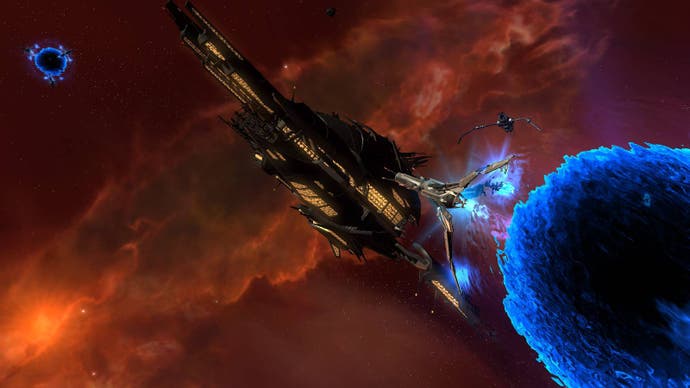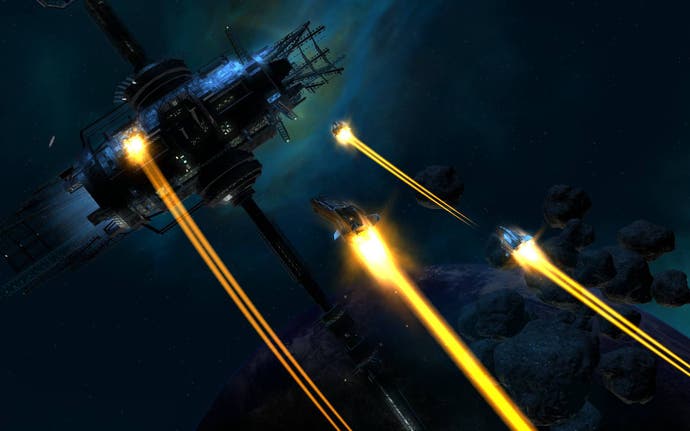Jumpgate: Evolution
NetDevil's Peterscheck on the return of the joystick.
Late last week we got a chance to speak to NetDevil's Hermann Peterscheck about the development of the company's reborn space MMO, Jumpgate Evolution. The project is intriguing: it's essentially a remake of the company's first game, the action-shooter MMO Jumpgate, which was released in 2001 and is still pottering away today. Evolution sees the concept expanded, extended, and pumped up with all the pixel-shader hormones of a brand new current-gen graphics engine. The core concept, however, remains the same: a space combat game where you fly your ship in real time and do damage in real time. It is closer in its genetics to Elite or Freespace than it is to EVE Online, and is one of the most interesting MMO projects currently on our radar. Let's find out more...
Well, after Auto Assault we began thinking about the kind of stuff we wanted to do next, and so that led to us thinking about the kind of game we actually like to play. That led to us thinking about Privateer, Freelancer, even going all the way back to Elite. We had already made a game like that, and we still enjoy the gameplay in those kinds of games today.
The other thing is that there are some giant gaps in the MMO options out there, and there's not a space combat MMO of this particular kind. There's EVE Online, which is huge and successful, but if you play that you'll know that it's a very different kind of game. So all this led to the questions "what if we were going to make Jumpgate again?" and "what if were to make it more modern?"
Obviously we would make it quite differently given the lessons we've learned over the past ten years. So we started out with a small team, and we weren't quite sure if we should just update the original game or to start from scratch. We began by updating the graphics and adding things, and over four or five months we realised we could take this more seriously and make a full game out of this. In fact, when you look at really successful games companies you tend to see that they produce various iterations on the same genre. We have an advantage there because we've already made this kind of game before, and now many other people have. We have a baseline to start from.

Yes, we are over a hundred people now in a little town outside of Denver called Louisville. It originally started with Scott [Brown] just working on Jumpgate, the original game, in his basement. I think he started around 1995, and released the game in around 2001. At the time we started helping Scott making Jumpgate, MMOs didn't really exist yet. There were MUDs and stuff like that, but the idea of an action game with hundreds of people in hadn't really appeared. Ultima Online came out around the same time too, and the MMO industry as it is now didn't exist at all. When we explained it to publishers at the time they'd be all, "an online action game - so, like Doom?" And when we said there were thousands of people in the game, they didn't understand.
Well you start off by creating a pilot and then choosing one of three playable nations. One of the things we wanted was to put you straight into the game, rather than there being a long, linear tutorial experience. So you start out right away in a mission and you have to take out some enemy ships. It teaches you to play, but you're in there right away. There's a lot of context-sensitive stuff in there to prompt the player at the start.

So you'll start out in that initial combat mission learning the mechanics of the game, and you go land at the station and we start to teach you to do station-type stuff: transactions, NPCs who give out missions to move the story along, things you can buy for your ship, and so on. The station is where the auction house is, and where you get licences - we have these things called licences that allow you to undertake certain activity, so you'll get a mining licence to do mining, and all those kind of things.
So you start out playing a bunch of missions and soon complete that pocket of content, and then the game opens up a little more. After that you enter the wider game, and that's where player-versus-player and the other more advanced experiences begin.








